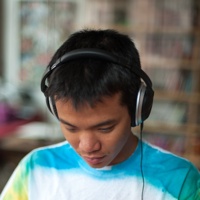Your Personal 24-hour news
We’re all familiar with the concept of the 24-hour news cycle that has become to characterize most of America’s news media outlets. Today I want to mention the idea of a personal 24-hour news cycle – something I’ve noticed for a while but recently gave some more thoughts about.
As with many people nowadays, I rely on Facebook News Feed and Twitter timeline to read and receive news, engage in discussions or simply stay updated with the whereabouts of people I’ve come to acquainted through the years and over 2 continents. A testament to this was how I personally chose to stay updated with the Boston bombings two weeks ago purely through these 2 media. I rely on the people I follow on Twitter (a list of semi-carefully curated sources) for noteworthy reports and retweets. I didn’t even look at trending hashtags’s feeds – those were too overcrowded and less reliable sources of information. I looked on Facebook for more reactions from the people closer to me, whom I knew personally.
In a (long ago predicted) way, my social media has slowly replaced newspaper and TV for me as a source of information. Not just for daily news and professional insights, but also for breaking news and latest reports.
All of this is just a context for the point I’m trying to make. Out of the 1100 plus friends I have on Facebook, half reside in Asia (more specifically, South East Asia) while the rest are dotted over the rest of the world, with a concentration in the US.
If my Facebook News Feed activities were to be plotted on a heat map, I’m sure the most red area would be around 7-11pm EST, the time when a lot of my Facebook connections (a majority of whom are in my age range) update their Facebook statuses, share interesting news or just be out and about on Facebook and Twitter socializing and commenting on other people. Things would then start to die down around midnight, and around 2am I wouldn’t get many updates.
This has sort of formed my nightly habits – as a creature easily distracted by anything but my homework, I spend my evening catching up on the daily news on Facebook and only start on my work as the news cycle slows down. I suspect this is (at least partially) true for many of my college friends too, judging from the sheer number of people online on Facebook chat. (It would be an interesting study if I keep track of this number by the hour over time.)
Interestingly, when I wake up in the morning and reach for my phone expecting perhaps a handful updates through the wee hours of the night, I instead see a slew of updates coming in from Asia. In a way, this is not all too surprising – people who work on international financial markets would be very familiar with this overlapping in time zones. But on a personal level, it is exciting for me to realize that as I wrap up my day and settle down for a night’s rest, many other people I know (more than half) are just starting out on their new day. When a video or an article goes viral and originates from the Western Hemisphere (like the Boston bombings), I will see updates from this side of the world first, then later another wave of updates (with seemingly equal sense of urgency) from Asia. Similarly, when New Zealand decided to pass the law legalizing gay marriage and broke out in a song, I first heard about it in the morning from my Asia-dwelling friends, only to be reminded of it later that evening by my friends here.
The same patterns could be observed on Twitter too, but to a lesser extent as I follow fewer people in Asia than those in the US.
Another interesting thing to note is that I see fewer updates from Vietnam than Singapore. There could be many factors at play here, and one of them could be the fact that access to Facebook is more restricted in Vietnam, so many people do not use it as their primary online social media platform as in Singapore or the US.
This observation isn’t ground-breaking or extremely interesting, but I suspect that it is something a lot of people who have online social connections spread across the globe (like college students studying abroad as an example) are and will experience. Our world has always been a very diverse and happening place – now all of that information is brought more to our forefront with better connectivity and better tools to stay connected. Spending a semester in far-flung places in Africa or treading over Europe no longer means dropping off the radar. It just means that we will hear from them at a different time in the day, and vice versa.
comments powered by Disqus